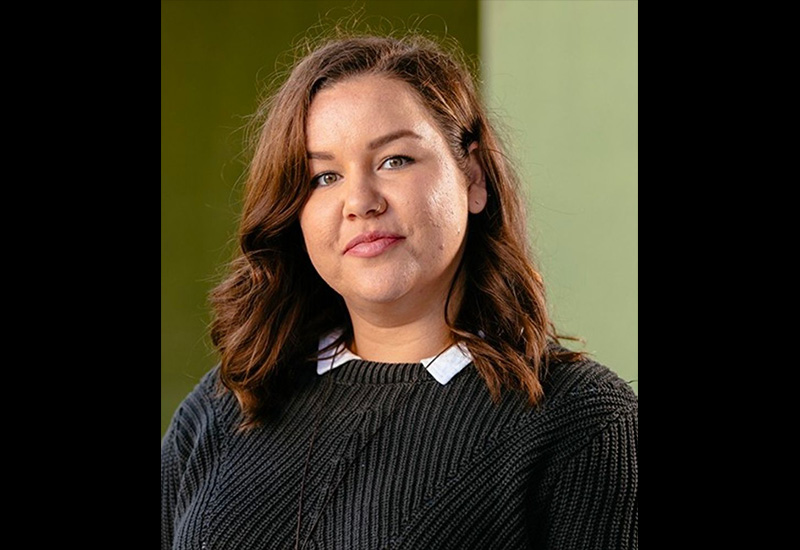IPEd member Nadia Johansen talks to us about her background, future aspirations and some highlights of her past two years with black&write!, where she started as an editor intern before being promoted to junior editor.
The black&write! editor internship program provides professional development and networking opportunities for First Nations editors, and IPEd is a partner in this initiative.
Tell us a little about your background
I’m a Gunggari person from south-west Queensland and I have lived most of my life in Meanjin.
Before I was an editor, I had many different jobs. I worked in not-for-profits for many years. I left that field to study a Bachelor of Fine Arts in creative writing at QUT, just before the pandemic struck. Unfortunately, my part-time career in hotel guest services in early 2020 was short-lived.
But I knew the uncertainty was worth it on my first day at black&write! when I was told of course I could read during work time. My previous employers were decidedly discouraging about reading novels in the office.
You’ve been with black&write! for two years, having started as an intern and being promoted to junior editor. What have been some of the highlights of your time with black&write!?
The black&write! program has a dual focus on developing First Nations writers and editors. Each year two manuscripts are chosen through our black&write! Writing Fellowship competition, and those writers work with a black&write! editor intern, or junior editor, to develop their manuscripts. Once they’re ready, they go to our publishing partner, Hachette, for consideration. As we work with the authors we’re mentored by black&write! senior editor Grace Lucas-Pennington, who is always generous and insightful.
I’ve learned so much about editing hands on and working with authors that you just can’t learn in a classroom. Grace and the amazing black&write! team have nurtured me to develop my own style as an editor, grounded in First Nations cultural practice and values.
The highlight each year has been reading for the fellowship competition. I was always blown away by the number and variety of fascinating, clever, imaginative First Nations works that are out there ready to be developed.
Are you able to tell us a little about the project(s) you’ve worked on during your black&write! internship, who you worked with, how they turned out, what you learned, etc.
I have been able to work with our black&write! Fellows to develop their manuscripts through each stage of the editorial process. I got to lead the editing of Tylissa Elisara’s middle-grade novel Wurrtoo: The wombat who fell in love with the sky. It’s possible I’m biased but I think it’s going to be the black Blinky Bill. I’ve also been able to work with Uncle Herb Wharton AM, who is just bursting with story.
I’ve also been able to commission work for Kill Your Darlings as a First Nations editor-in-residence. I’m currently commissioning poetry for Meanjin for their first First Nations issue. This is giving me the opportunity to work with a greater variety of authors, poets, and publisher expectations. I learned how different each piece and each author can be. I also realised that editing work can be creatively satisfying and it always provides new challenges.
What are your aspirations or goals for after you’ve completed the internship?
I’m going to continue working as an editor. I’ve started freelancing and really enjoy that, but I would love to work in-house as well. I plan to get my Masters, after I’ve had enough of a break from university to convince myself it will be easy.
At some point, I hope to find the notebook that will allow me to create the perfect balance between editing work and pursuing my own writing.
What made you decide to enter the field of editing/publishing and apply for the internship at black&write!?
I’ve always loved stories and books. Working in publishing, both as a writer and editor, was my dream from a very young age. I think I needed to try jobs I wasn’t suited to and build up enough life experience to be able to take the risk of pursuing and possibly failing at my dream. black&write! was the missing piece that connected my desire to work with, and for, First Nations communities to my love for story.
As part of IPEd’s support of black&write!’s editor internship program, we’ve offered free membership to members of the black&write! program. What has it been like being a relatively new member of IPEd?
I was excited when IPEd offered us memberships. Reading the newsletter each month helps keep me informed about the industry. I’ve only been a member for a few months, so I haven’t had a chance to access any of the professional development events. But I do have a long list of the ones I’d like to watch. There are a few things I’d like a refresher in, and some new skills I’d like to develop.

